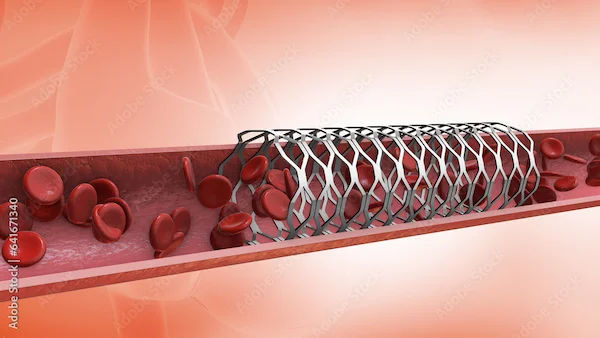- Male
- 18 Years
- 23/01/2025
I'm a bit concerned because when I place my hand on my chest, I can't feel my heartbeat. However, I can easily feel my pulse in the veins of my hand when I'm sitting quietly. Is this something normal, or should I be worried?
Answered by 1 Apollo Doctors
Viral fever concerns:
Common symptoms:
- Fever
- Chills
- Headache
- Fatigue
- Body aches
- Sore throat
Not all viral infections have:
- Running nose
- Cough
Your experience:
- Fever
- Chills
- Sweating (paracetamol-related)
- Normal blood tests
Doctor's concerns:
- Platelet count monitoring (potential viral-related thrombocytopenia)
- Ruling out other conditions (e.g., dengue, malaria)
Follow-up:
- Return to the hospital in 2 days for platelet count check
- Monitor symptoms:
- Fever persistence
- Severe headache
- Difficulty breathing
- Abdominal pain
General advice:
- Stay hydrated
- Rest
- Paracetamol or doctor-recommended medication for fever management
Dr. Dr Khaleel Suggests...
Consult a Cardiologist
Answered 04/07/2025
0
0

More Cardiology Health Queries
View allI'm dealing with high cholesterol, and my LDL is 220. I dont really have any physical issues, but I do snore quite a bit. I avoid smoking and drinking, so that's not a factor. Do you think I should see a cardiologist or just a general physician for this cholesterol issue? Also, is medication necessary for my LDL level, or can I simply make some changes to my diet?
For managing high cholesterol, including an LDL level of 220 mgdL, it's advisable to consult a cardiologist, given the significant elevation and the associated cardiovascular risks. A cardiologist can provide a comprehensive evaluation and personalized treatment plan. Whether you require medication or can manage your cholesterol through lifestyle changes depends on your overall risk profile, including age, family history, and any other health conditions. Typically, an LDL level of 220 mgdL would warrant the use of statin medications in addition to adopting heart-healthy dietary changes, such as reducing saturated and trans fats, increasing fiber intake, and incorporating more fruits, vegetables, and whole grains into your diet.
Answered by 1 Apollo Doctors
I'm a 27-year-old guy and I've been on high blood pressure meds for about a year now. Lately, I've also started taking Concor 1.25 daily. I've noticed that sometimes my heart rate seems to drop, and it's really freaking me out. What could be causing this?
I understand that feeling a drop in your heartbeat can be quite alarming. Given that you are taking high blood pressure medication and Concor (bisoprolol, a beta-blocker), it's possible that your symptoms could be related to your medication. Beta-blockers like bisoprolol are known to lower both blood pressure and heart rate, and sometimes they can cause bradycardia (a slower than normal heart rate). This can occasionally make you feel lightheaded or cause an irregular heartbeat. It's important to discuss these symptoms with your healthcare provider, as they might need to adjust your medication dosage or explore other underlying causes for your symptoms. In the meantime, keep monitoring your heart rate and blood pressure, and avoid any activities that could trigger these symptoms or put you at risk.
Answered by 1 Apollo Doctors
I'm a bit worried because my ECG test came back with something called Diagnosed402 pre-excitement syndrome. Is this dangerous? I'm also dealing with hypothyroidism, high eosinophils, and an increased red blood cell count. Can you shed some light on what all this means for my health?
Your ECG findings of pre-excitation syndrome (WPW syndrome) can sometimes lead to dangerous arrhythmias, especially in the presence of other medical conditions like hypothyroidism, elevated eosinophils, and high RBC count. It is important to manage these conditions to reduce the risk of complications. For pre-excitation syndrome, medications like **Procainamide** can be used to control arrhythmias. However, in some cases, a procedure called catheter ablation may be recommended to correct the abnormal electrical pathway in the heart. For hypothyroidism, you may need to take **Levothyroxine** to replace the deficient thyroid hormone. Elevated eosinophils may indicate allergies or parasitic infections, and treatment with antihistamines or anti-parasitic medications may be necessary. High RBC count can be managed by addressing the underlying cause, such as dehydration or lung disease. It is important to follow up with your healthcare provider for a comprehensive evaluation and personalized treatment plan.
Answered by 1 Apollo Doctors
Disclaimer: Answers on Apollo 247 are not intended to replace your doctor advice. Always seek help of a professional doctor in case of an medical emergency or ailment.





